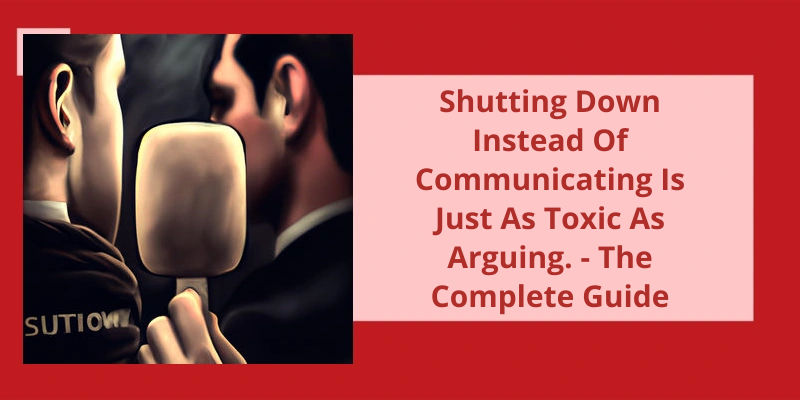Whether it's a loved one, a close friend, or even a colleague, receiving such a message can help you feel cherished and supported. Knowing how to respond appropriately can deepen the connection between you and the sender, showcasing your gratitude, reciprocating their care, and ensuring a peaceful night's rest for both parties. By expressing your gratitude, offering well wishes, and reciprocating their thoughtfulness, you can further strengthen your bond and leave a positive impression while ensuring a restful sleep for both of you.
What Do You Reply When Someone Asks You Sleep Well?
I did have a good nights sleep, thank you for checking in.”. These responses convey gratitude and appreciation for the persons concern without revealing too much or delving into a lengthy conversation about ones sleep patterns.
Another possible response could be, “Thanks for asking! I’d a restful night and woke up feeling refreshed.”. This highlights the positive aspect of a good nights sleep without going into too much detail.
Alternatively, if you didnt have a good nights sleep, you could reply with, “I appreciate you asking, but unfortunately, I didnt sleep well last night. Hopefully, tonight will be better!”. This response acknowledges the persons concern while also being honest about your sleep experience.
You can also reply with a more casual response such as, “Thanks for asking! I slept like a rock last night, it was great!”. This keeps the conversation light and positive without delving into too much detail about your sleep.
Overall, the key in responding to a “sleep well” text is to express gratitude for their concern while offering a concise yet genuine response about your sleep. It’s important to strike a balance between providing a meaningful answer and not elaborating too much if you don’t feel like delving into a longer conversation about sleep.
Sharing Tips for Better Sleep
- Avoid caffeine, especially in the afternoon and evening.
- Establish a consistent sleep schedule by going to bed and waking up at the same time every day.
- Create a relaxing bedtime routine, such as reading a book or taking a warm bath.
- Make sure your bedroom is a comfortable and peaceful environment for sleep.
- Avoid eating heavy meals close to bedtime.
- Exercise regularly, but not too close to bedtime.
- Avoid electronic devices before bed, as the blue light can interfere with sleep.
- Avoid napping during the day, especially in the late afternoon.
- Limit alcohol consumption, as it can disrupt sleep patterns.
- Try relaxation techniques, such as deep breathing or meditation, to help calm your mind before bed.
- Consider using white noise or a sound machine to drown out noise and promote better sleep.
When someone wishes you to “sleep well,” it’s a courteous expression that signifies their hope for you to obtain sufficient rest without experiencing any disturbing dreams. This thoughtful sentiment is often exchanged as individuals prepare to retire to bed for the night.
What Does It Mean if Someone Says Sleep Well?
When someone says “sleep well” to you, it’s a friendly and caring gesture typically expressed when youre about to head to bed. This phrase conveys the sentiment that the person hopes you’ve a restful night and that you’re able to recharge and rejuvenate your body and mind during your sleep. Essentially, it’s a way of saying “I hope you get all the rest you need, and don’t have any unpleasant dreams.”
Receiving a “sleep well” text can bring a sense of comfort and warmth, knowing that someone took the time to send you positive vibes before you drift off to sleep. It can make you feel cared for and valued, knowing that the person wishes you a peaceful and undisturbed slumber. In a world that can be chaotic and demanding, the simple act of someone wishing you a good nights sleep can be a reassuring reminder that you aren’t alone, and that someone is thinking of your well-being.
Furthermore, this phrase implies that the person wants you to have a deep, uninterrupted sleep so that you wake up feeling refreshed and ready to tackle the day ahead. It acknowledges the importance of quality sleep and recognizes that a good nights rest is essential for maintaining good physical and mental health.
Additionally, when someone wishes you to sleep well, it also suggests that they hope you’ve peaceful dreams and don’t encounter any nightmares or disturbing thoughts during your slumber. They want your subconscious mind to be calm and harmonious, devoid of any unpleasant or distressing images or experiences. This aspect of the phrase shows that the person wants not only your body to rest but also your mind, ensuring that you’ve a serene and tranquil sleep experience.
They hope that you’ve a restful nights sleep, free from any unsettling dreams, so that you can wake up feeling refreshed and ready to take on a new day. This kind-hearted gesture serves as a reminder that someone cares about your sleep health and wants you to experience the rejuvenating benefits of a good nights rest. So, embrace this gesture, relax, and allow yourself to drift into a peaceful slumber, knowing that someone has your best interests at heart.
As you receive a goodnight text, the simplest yet delightful way to reply is by reciprocating the sentiment with a simple “Goodnight”. Alternatively, you can express anticipation for the following day with a casual “See you in the morning”. These responses are courteous and will surely leave a positive impression on the sender.
How Do You Reply to Goodnight Text?
When it comes to responding to a “sleep well” text, there are a few simple options that can express your well wishes in a concise manner. The most straightforward response is a simple “Goodnight”. This conveys your acknowledgment of the message and reciprocates the sentiment. It’s a classic and widely understood response that’s both polite and appropriate.
Another option you can consider is replying with “See you in the morning”. This response acknowledges the fact that you’ll be seeing the person again when they wake up, reinforcing a positive and hopeful tone. It also implies that you’re looking forward to connecting with them again once everyone has had a good nights sleep.
While these responses may seem quite simple, they effectively convey your intentions to the other person. Your response should aim to make the other person feel acknowledged and appreciated, even if it’s a brief message.
Of course, everyone has their own unique communication style, so you can tailor your response to suit your personal preferences. Whether it’s adding a smiley face emoji or saying something like “Sweet dreams”, the key is to convey a sense of warmth and genuine concern for the other persons restful night.
By acknowledging their message and reciprocating the sentiment, you’re fostering a sense of connection and showing that you value their well-being. So, whether you choose to respond with a simple “Goodnight” or a slightly more elaborate “See you in the morning”, the important thing is to convey your genuine wishes for a peaceful nights sleep.
Responding to “Goodnight” Texts in a Long-Distance Relationship
- Hey, hope you’d a wonderful day!
- Goodnight! Sending you lots of hugs and kisses from afar.
- Sweet dreams, my love. I can’t wait to see you soon.
- Sleep tight, and know that you’re always on my mind.
- Wishing you a peaceful night filled with love and happiness.
- Although we’re apart, know that my heart is always with you. Goodnight!
- Rest well, my darling. Tomorrow is another day closer to being together again.
Source: If anyone says good night to me, what should I respond with?
The use of the adverb “well” when referring to the act of sleeping as a verb is a matter of appropriateness and context. While some may use the phrase “I slept good” in certain speech situations, the more widely acceptable and versatile option is to say “sleep well.” This phrase finds it’s place not only in spoken language but also in various written communication contexts.
Is It Appropriate to Say Sleep Well?
When someone sends you a text before going to bed saying “Sleep well,” it’s generally seen as a kind and considerate gesture. It’s a way of expressing care and wanting the recipient to have a restful nights sleep. But is it appropriate to respond to this text? The answer is subjective and depends on the individuals involved and the nature of the relationship.
Using the adverb “well” when responding to a “Sleep well” text is considered grammatically correct. It demonstrates an understanding of the verb “sleep” and it’s proper usage. While saying “I slept good” may be acceptable in certain speech contexts, responding with “Sleep well” is more widely accepted in both spoken and written language. It conveys a sense of wishing the person a peaceful and refreshing sleep, rather than just a generic good night.
If you feel the need to respond, keep it brief and genuine. And if you choose not to respond, know that it’s perfectly acceptable as well. The important thing is to appreciate the caring gesture behind the message and to get a good nights sleep, as intended.
Conclusion
By expressing gratitude and reciprocating the well wishes, you can effectively convey your appreciation for their thoughtful message. It’s essential to personalize your response by considering the sender's relationship and the context of the situation. Remember to be considerate and comforting, offering words of reassurance or simply sending back the same well wishes. By doing so, you can maintain a positive and caring connection, even through a simple sleep well text.





